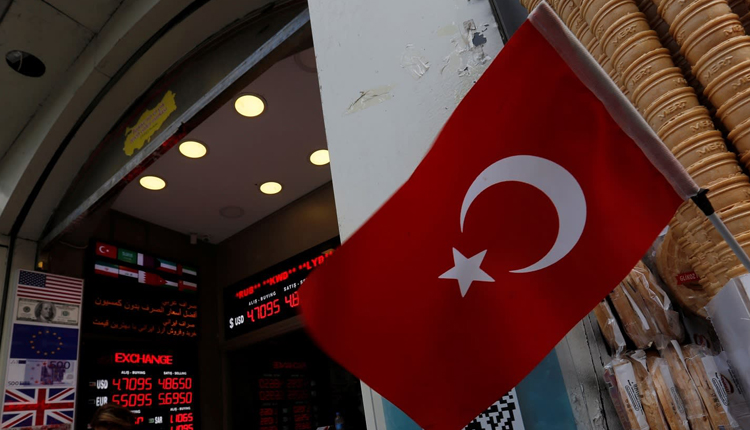Global finance chiefs urged Turkey’s President Recep Tayyip Erdogan to preserve the independence of his country’s central bank after confusion sent its currency plummeting.
The recent bout of mixed signals over whether the central bank is free of political interference created a sense of uncertainty among investors, putting the currency under pressure, International Monatary Fund Managing Director Christine Lagarde said in an interview with Bloomberg Television in St. Petersburg.
“In terms of monetary policy, it’s always better for all political leaders to let the central bank governors do the job that they have to do, and to preserve and secure their independence,” she said.
In a separate interview with Bloomberg TV in Stockholm, Agustin Carstens, the head of the Bank for International Settlements, said Erdogan had been “very outspoken” and advised governments against “tinkering with central bank independence.”
Turkey is suffering a currency crisis after Erdogan said this month he would exert greater power over central banking if he won re-election next month. He had repeatedly opposed any moves to raise interest rates, referring to them as “the mother of all evil,” while investors and economists argued that was the only way to halt the rout.
“Some of the comments made alerted the international community and particularly the investors to the fact that suddenly the central bank of Turkey could be under directions, instructions, or influence,” Lagarde said. “That has created a sense of uncertainty and a lack of confidence, which has found its way in the market.”
Erdogan subsequently pledged allegiance to global principles on monetary policy, and on Wednesday Turkey’s central bank raised one of its key interest rates by 300 basis points to 16.5 percent in an emergency meeting after three weeks of largely self-inflicted market turmoil.
Stabilizing Argentina
On Argentina, Lagarde said the IMF has been working actively with its officials to design measures to help stabilize the situation in its economy and restore confidence. She said the process was “progressing well.”
“We are really moving ahead and we have committed to President Macri that we will do the best we can in order to move expeditiously and efficiently in order to change the perception about Argentina and the perception that people have about our role,” Lagarde said. “So I am very, very focused on that relationship.”
Lagarde said the current outflows seen in emerging markets were to be expected in the event of dollar strengthening, but that many markets are in much better shape today than at the time of the “taper tantrum” in 2013.
“We did say that with dollar strengthening and monetary policy tightening in the U.S. we would most likely see a flow back of capital from emerging markets,” she said. “That’s obviously going to unsettle some the emerging markets that have not taken the necessary precautions or are weak in their fundamentals.”
Confidence Undermined
U.S. President Donald Trump’s decision to withdraw from a planned a summit meeting with North Korean leader Kim Jong Un next month is the type of unilateral political decision that could have economic ramifications by undermining confidence, Lagarde said. The Trump administration’s decision to withdraw from its nuclear agreement with Iran was another, she said.
“I’m concerned about any decision, or any reverse decision, that continues to undermine trust,” she said. “Trade is picking up, investments are back, and anything that undermines that fundamental asset of trust is putting that at risk.”
Trade ‘Wounds’
While the growth in global trade has had tremendous benefits and should be celebrated, the reconfiguration of global supply chains has also “inflicted wounds that we have not really focused on healing and helping,” Lagarde said. “Trade has had its downsides as well, which we have very much ignored.”
Still, trading nations must work together to solve the problems and comply with the existing framework and rules rather than taking unilateral action, she said.
“Some players around the world — not only China — many players have taken nationally justifiable measures that actually hinder international trade,” Lagarde said. “This needs to be looked into, but on a collective, cooperative basis because it’s in everybody’s interests.”
Source: Bloomberg


